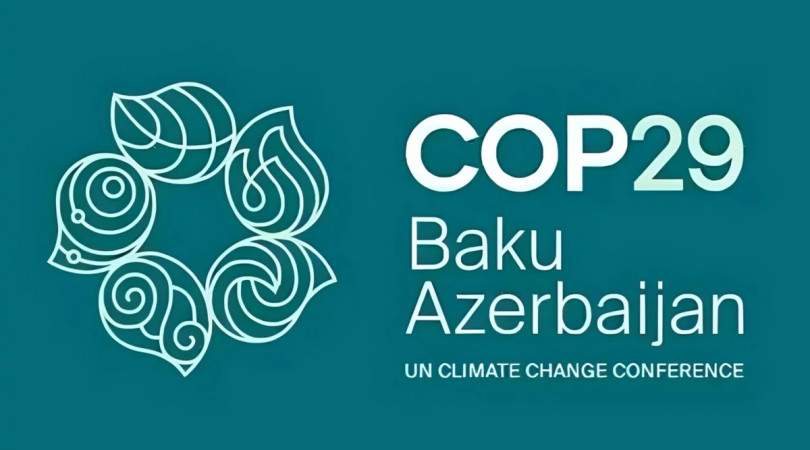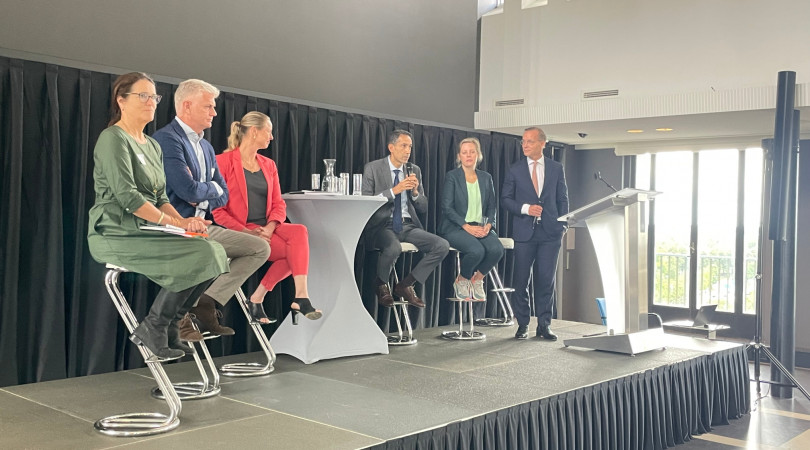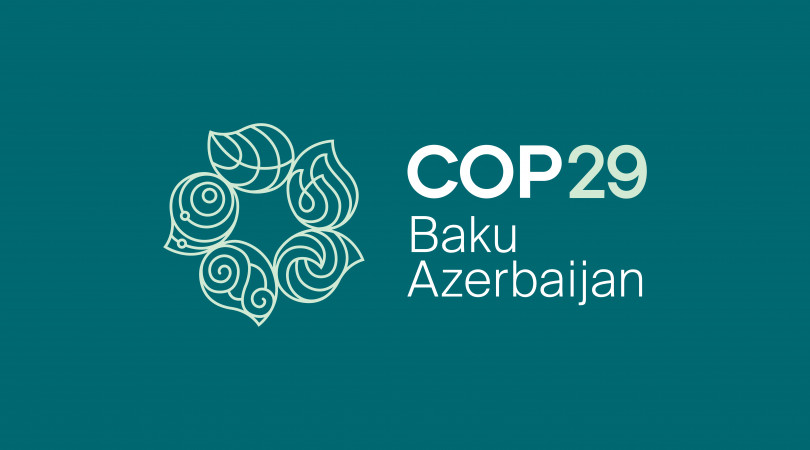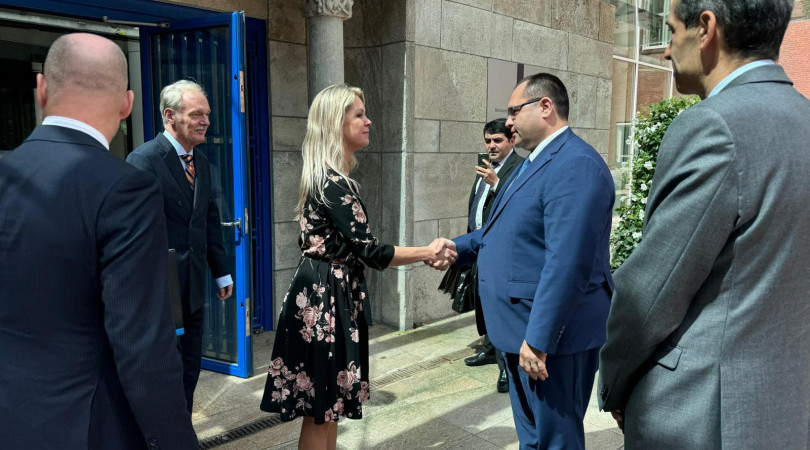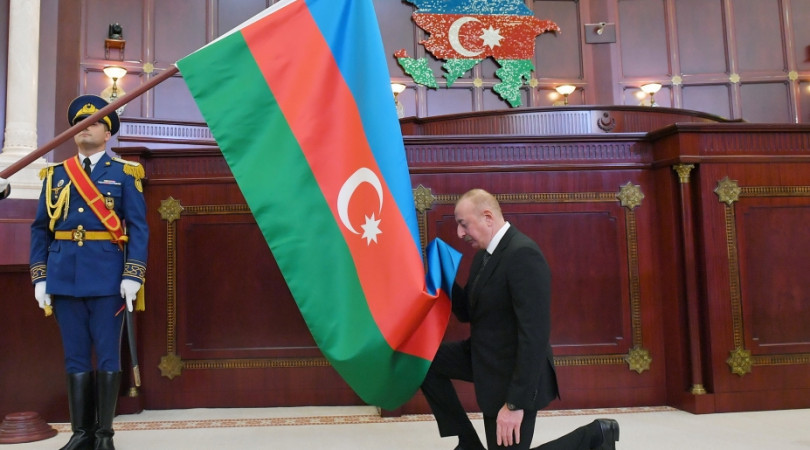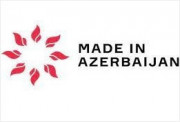Speech of Elmar Mammadyarov, Minister of Foreign Affairs of the Republic of Azerbaijan at the Eastern Partnership Ministerial Foreign Affairs Meeting
23 May 2016, Brussels
Madam Mogherini, Thanks!
Commissioner Hahn,
Distinguished colleagues,
Ladies and gentlemen,
We welcome the fact that the principles of differentiation, flexibility, focus and greater ownership feature the new European Neighborhood Policy document as a step to adapt EU policy vis-à-vis its Eastern dimension to current realities and the needs of partner countries.
Azerbaijan has always demonstrated a strong political will to develop the relationship with the EU based on principles of equal partnership and mutually benefit. A year ago Azerbaijan introduced the draft Strategic Partnership Agreement (SPA) to the EU side on the margins of the Riga Summit. This agreement will lay the solid foundation for upgrading our bilateral relationship to qualitatively new level and for better securing our common interests.
The visit of the EU High Representative for Foreign Affairs and Security Policy Federica Mogherini to Azerbaijan was a good opportunity for reviewing and discussing the future direction of the EU-Azerbaijan relationship. We attach great importance to enhancing our bilateral cooperation in many areas of shared interest and, having recently finalized joint consultations on the scope of Strategic Partnership Agreement, we understand that the EU will come up with an official mandate to launch negotiations soon.
Currently, we are working on the resumption of existing political dialogue mechanism aimed at re-energizing our bilateral cooperation. Furthermore, we are also ready to resume negotiations on Common Aviation Agreement with the EU.
Dear Colleagues,
The revised ENP reaffirmed importance of completing the Southern Gas Corridor to achieving pan-European energy security. Timely and successful finalization of this global importance project is critical for bringing alternative gas volumes to Europe. The 2nd Ministerial Meeting of Advisory Council recently held in Baku and attended by Federica Mogherini and Maroš Šefčovič delivered a message of unity and solidarity on unimpeded implementation of this multibillion project. The groundbreaking ceremony of Trans Adriatic Pipeline held on 17 May in Thessaloniki, Greece marked another milestone in this regard. Azerbaijan is and will remain a committed partner to meet joint strategic interests in the field of energy security.
There is huge untapped potential in the area of transport as well. Azerbaijan continues to make all efforts to further contribute to the development of transit corridors in our region, particularly the East-West and South-North corridors. Baku-Tbilisi-Kars railway project, expected to be operational by the end of this year, will join the ranks of the region’s most critical infrastructures once China’s Silk Road Economic Belt concept comes to the full reality.
These projects bear more implications than mere economic-commercial benefits. They will serve as an effective instrument for engagement in wider areas of common interest between the EU and Azerbaijan.
Ladies and Gentlemen,
Multiculturalism and diversity should be promoted widely in order to overcome growing threats as radicalization, extremism and terrorism. Azerbaijan with its vibrant multicultural society is ready to share its experience in this regard. Meanwhile, we regard EU Strategy of Culture in its external action instrumental in identifying the modalities of our practical engagement in this field.
The 7th Global Forum of the United Nations Alliance of Civilizations (UNAOC) held in Baku on April 25-27 2016, adopted the Baku Declaration which would serve as guidelines for states and international organizations in promotion of intercultural dialogue and multiculturalism as a way to counter violence and extremism and sustain peace, security and prosperity for all and everybody. The Forum’s themes and sub-themes reflected the 2030 Agenda for Sustainable Development, which incorporates the promotion of inclusive societies as pivotal component for sustainable development, and the creation of justice, peace, and security. The Forum was attended by more than 4000 participants, including heads of states and governments, officials, academicians, experts and representatives of civil society and media.
Ladies and Gentlemen,
The revised ENP has put forward the stabilization as the most urgent challenge in many parts of the European Neighbourhood. True stabilization in the proper sense of this word is unimaginable without addressing pressing security challenges, that is, without the settlement of protracted military conflicts which threaten the stability and cooperation in the Eastern Partnership geography.
On May 16 Vienna meeting of the Presidents of Armenia and Azerbaijan and Foreign Ministers of OSCE Minsk Group Co-Chair countries was convened. The recent escalation in front-line has signaled that “status quo” in the settlement of Armenia-Azerbaijan conflict may lead to violence and severe military clashes. Everyone fed up with the status quo which is not reliable and remains unsustainable and unacceptable. Demilitarization and withdrawal of troops has to be ensured.
Moving beyond this situation by means of constructive negotiations can bring desired peace and stability to the region. However, statements threatening Azerbaijan with “dirty bombs” bears no indication of any intention of Armenia in this regard. In the meantime, we call international community to closely scrutinize Armenia’s disobedience to commitments taken under international conventions on non-proliferation of weapons of mass-destruction. This is critically important in view of previous and recently discovered notorious criminal cases related to trafficking radioactive materials from Armenia to potential third countries.
Thank you!

